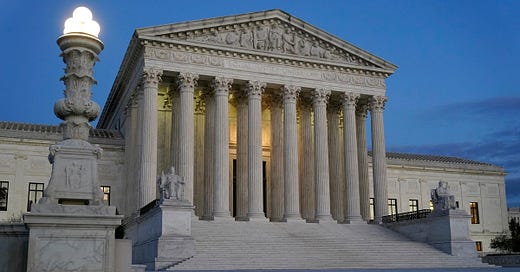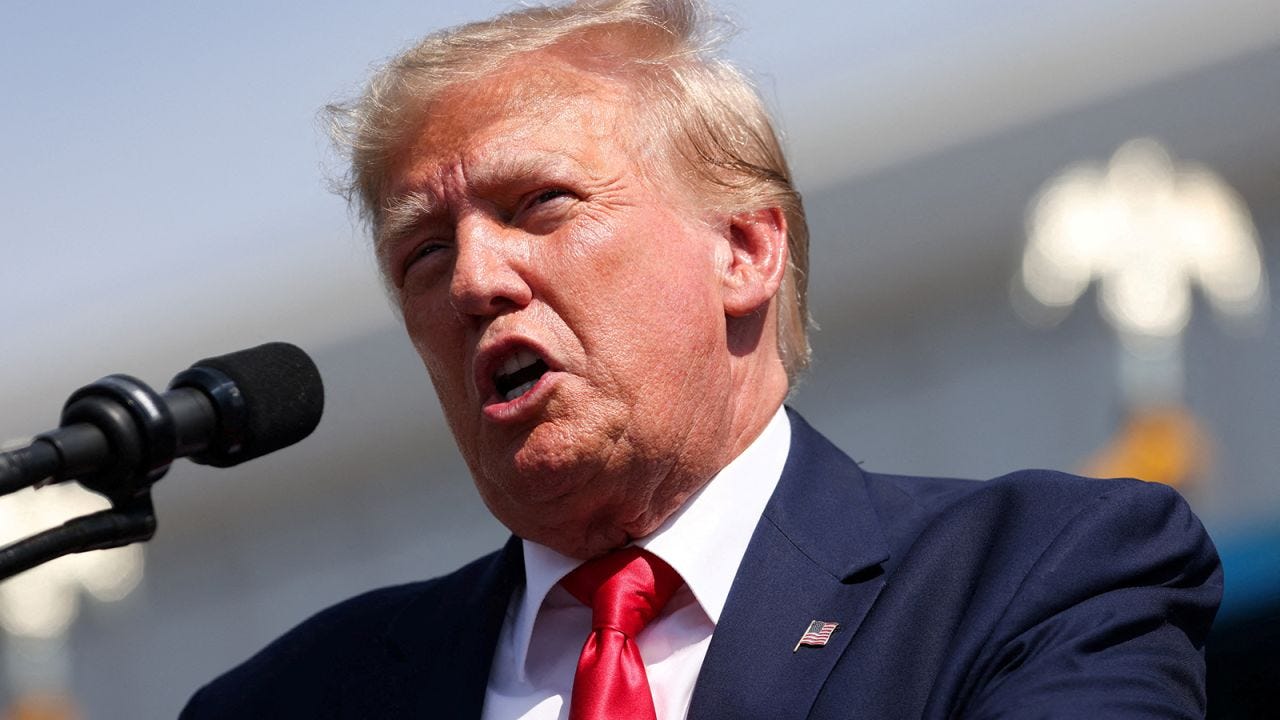Invoking an Archaic Constitutional Provision is a Genuine Effort to Disqualify Trump or Merely a Publicity Stunt?
The Battle Over Ballot Access: 14th Amendment Takes Center Stage in Trump's Political Future.
A Constitutional Conundrum
Capturing the attention of America, an upcoming legal battle promises to be one for the history books, prompting legal experts and constitutional scholars to pore over an often-overlooked section of the U.S. Constitution. The focal point of this debate hinges on whether Donald Trump's purported involvement in the events of January 6, 2021, at the U.S. Capitol can be legally defined as an "insurrection." If so, Section 3 of the 14th Amendment could be invoked, potentially barring him from holding future public office. With the nation's eyes keenly watching, this legal scenario unfolds as a complex constitutional conundrum that could have far-reaching implications.
Two States, One Question
Courts in Colorado and Minnesota are spearheading this complex issue. In Denver, a week-long hearing is slated to consider whether the Capitol riot qualifies as an insurrection under the 14th Amendment. Meanwhile, the Minnesota Supreme Court will delve into the constitutional nuances that might keep Trump off the ballot in that state.
Unprecedented Legal Strategy
The lawsuits employ a unique blend of conservatives and liberals in their legal team, targeting a relatively obscure part of the Constitution. Section 3 of the 14th Amendment states that no person can hold public office if they have engaged in “insurrection” after taking an oath to support the Constitution. Originally designed to thwart former Confederate soldiers from undermining Reconstruction, this section has lain dormant for generations. Now, it could serve as a significant potential roadblock for Trump.
Differing Opinions
Trump has dismissed these lawsuits as "nonsense," equating the legal efforts to "election interference." Legal experts, too, are divided on the merit of this argument. Critics argue that employing such an unclear or vague constitutional provision might be seen as a political tactic rather than a sound legal strategy. Proponents, however, believe the section is relevant and that Trump's actions leading up to and on Jan. 6 warrant his disqualification.
The Ripple Effect
This issue could cause significant upheaval in the upcoming presidential election. A ruling in either Colorado or Minnesota barring Trump from the ballot could set a precedent for other states, leading to a cascade of similar lawsuits. While some might applaud the move, it could also spark controversy, as a significant portion of the electorate would see this as sidelining a candidate who remains highly popular among Republicans.
Legal and Philosophical Concerns
The cases are riddled with intricate questions. From defining "insurrection" to clarifying if the Presidency falls under the scope of the 14th Amendment, each query poses a hurdle for the plaintiffs. To succeed, they must win on every argument. Should Trump prevail on any point, he will be eligible to run for office again.
Implications for Democracy
The entire process is not without its risks. While keeping Trump off the ballot might satisfy his critics, it could also exacerbate existing political tensions. Scholars like Alan Rozenshtein of the University of Minnesota Law School worry that taking such a drastic measure might be anti-democratic and could potentially inflame, rather than solve, the problem of Trump’s influence on American politics.
Unprecedented Legal Battle Heads Towards the Supreme Court
In the intricate tapestry of American legal history, the unfolding lawsuits against former President Donald Trump offer an unprecedented test of constitutional law. While lower courts in Colorado and Minnesota deliberate over whether the Capitol Hill riot on January 6th, 2021, qualifies as an "insurrection," the ultimate interpreter of this labyrinthine situation will likely be the U.S. Supreme Court. Considering that Trump has appointed three of its nine justices, the Court's final ruling is shrouded in uncertainty and could either affirm or upend prevailing legal opinions.
Balancing Act: Upholding Democracy vs. Setting a Dangerous Precedent
As we inch closer to a possible legal conclusion, we must ponder the delicate balance this case holds. On one hand, the interpretation of the 14th Amendment could serve as a judicial tool to inhibit the political career of a deeply polarising figure. On the other hand, the case stands as a precarious cliff-edge, potentially undermining the democratic institutions it seeks to protect. Deploying an obscure constitutional provision to disqualify a candidate could send tremors through the democratic bedrock of the United States, making the nation's political landscape even more volatile.
Summing Up and Looking Forward
In summary, the impending legal actions against Donald Trump represent more than just a constitutional conundrum; they delve into the foundational principles that uphold American democracy. Given that the U.S. Supreme Court is poised to be the final arbiter in this high-stakes battle, its ruling will carry weighty implications. Not only will the decision dictate the political future of Donald Trump, but it may also redefine the very parameters of democratic governance in America.
However, there is another viewpoint suggesting that these lawsuits are merely a publicity stunt, the handiwork of those seeking attention rather than justice. In this context, what Trump and his campaign ought to be genuinely concerned about are the four criminal cases pending against him—cases in which he could potentially face a prison term well before the election day on 5th November 2024.
We live in interesting times. While everything is possible, nothing is probable. As the legal and political drama continues to unfold, all we can do is wait and see.






